Sudan: RSF commander’s ‘North Kordofan governor should be in jail’ interview banned
The commander of Sudan’s main paramilitary Rapid Support Forces (RSF) militia, Lt. Gen. Mohamed Hamdan (aka Hemeti), has said in a TV interview that the Governor of North Kordofan should be in jail for “bringing us into disrepute”. The interview was quickly banned and the programme suspended by the security apparatus.
 The commander of Sudan’s main paramilitary Rapid Support Forces (RSF) militia, Lt. Gen. Mohamed Hamdan (aka Hemeti) (File photo)
The commander of Sudan’s main paramilitary Rapid Support Forces (RSF) militia, Lt. Gen. Mohamed Hamdan (aka Hemeti) (File photo)
The commander of Sudan’s main paramilitary Rapid Support Forces (RSF) militia, Lt. Gen. Mohamed Hamdan (aka Hemeti), has said in a TV interview that the Governor of North Kordofan should be in jail for “bringing us into disrepute”. The interview was quickly banned and the programme suspended by the security apparatus.
In an interview with Sudanese television Channel 24 broadcast on Tuesday evening, militia commander Hemeti said that the governor of North Kordofan, Ahmed Haroun’s place is in jail rather than the state government.
He accused the opposition dignitaries and a group within the government of ‘conspiring to seek to discredit his forces’.
‘Disrepute’
The defiant commander suggested that the Governor of North Kordofan should be in jail for “bringing the RSF into disrepute”.
In 2014, the residents of El Obeid took part in a mass demonstration, demanding the expulsion of the RSF which had allegedly carried out acts of murder, rape, and theft against the residents of the state. At the time, Governor Ahmed Haroun issued a statement in which he apologised to the residents and issued a decision to expel them from the state.
Ironically, Haroun is subject to an international arrest warrant as he has been indicted by the International Criminal Court in The Hague on 51 counts of war crimes and crimes against humanity which he allegedly committed in Darfur.
Head shaving
In reaction to reports about RSF paramilitaries who began to shave men by force in Khartoum North in September as part of “the fight against negative phenomena”, the commander confirmed that video clips shown depicted some of his militiamen shaving young people in the streets, however he said that “it was done years ago against some Minni-Minawi affiliate”.
Hemeti boasted of RSF involvement in investments to finance their work.
In Khartoum, dozens of youths and residents of the districts of El Haj Yousef, El Jereif, and Kalakla have complained of being beaten and cursed and their heads being shaved by the Rapid Support Militia.
Programme suspended
In response to the broadcast, on Wednesday the National Intelligence and Security Service (NISS) suspended the State of the Nation programme. Presenter Tahir Hasan El Tom said on his Facebook account that “the state programme will be absent from its viewers because of directives issued by the security and intelligence services”, which summoned him and notified him of the fact. He is also being investigated personally.
Ongoing media curbs
The Media in Sudan are continuously subjected to confiscations of newspapers, and summons and detentions of journalists.
In the end of June, the cabinet extended the power of the government-controlled Press and Publications Council as well as restrictions on the media to online news outlets, when it passed amendments of the Media and Publication Act. A month later, the NISS restored prior-censorship of newspapers.
In early August, editors-in-chief and the head of the NISS in Khartoum agreed in a meeting to form a committee to deliberate on the so-called red lines set by the security apparatus for Sudanese media. New confiscations of newspapers were therefore briefly suspended.
However, the NISS began gagging the press again on August 27, when the print-runs of El Jareeda and El Tayyar were confiscated. No explanations were given. Four days later, NISS officers stopped the distribution of El Jareeda and El Tayyar again, together with the print-run of El Rai El Aam, without stating a reason.
Abdelaziz told Radio Dabanga at the time that “in the past there used to be ‘red lines’ not to criticise the president or vice-presidents of Sudan, members of the security apparatus, and the police. However, these lines have become very unclear and unpredictable now”.
In early September, three young journalists were summoned by security agents in Khartoum and El Gedaref. A Sudanese reporter was banned from writing. The print-run of El Saiha daily, the newspaper he was writing for, was confiscated on September 8.
Sudan is ranked at the bottom of the World Press Freedom Index by Reporters Without Borders.











 and then
and then